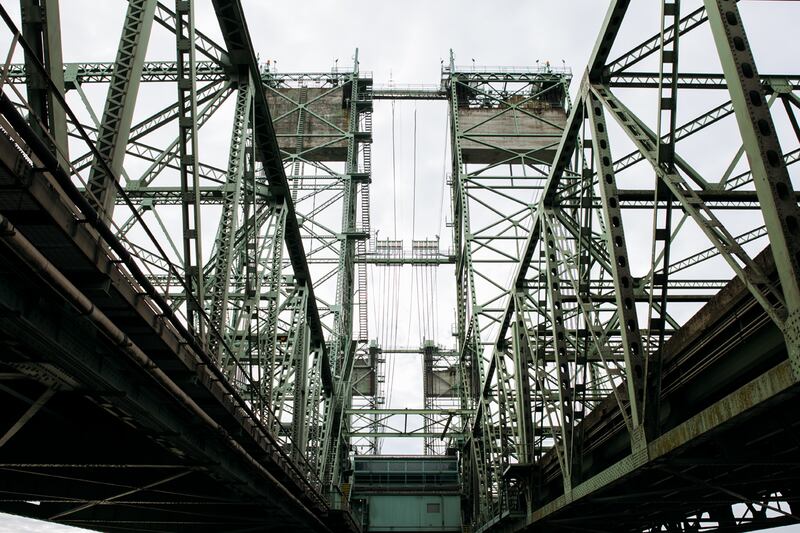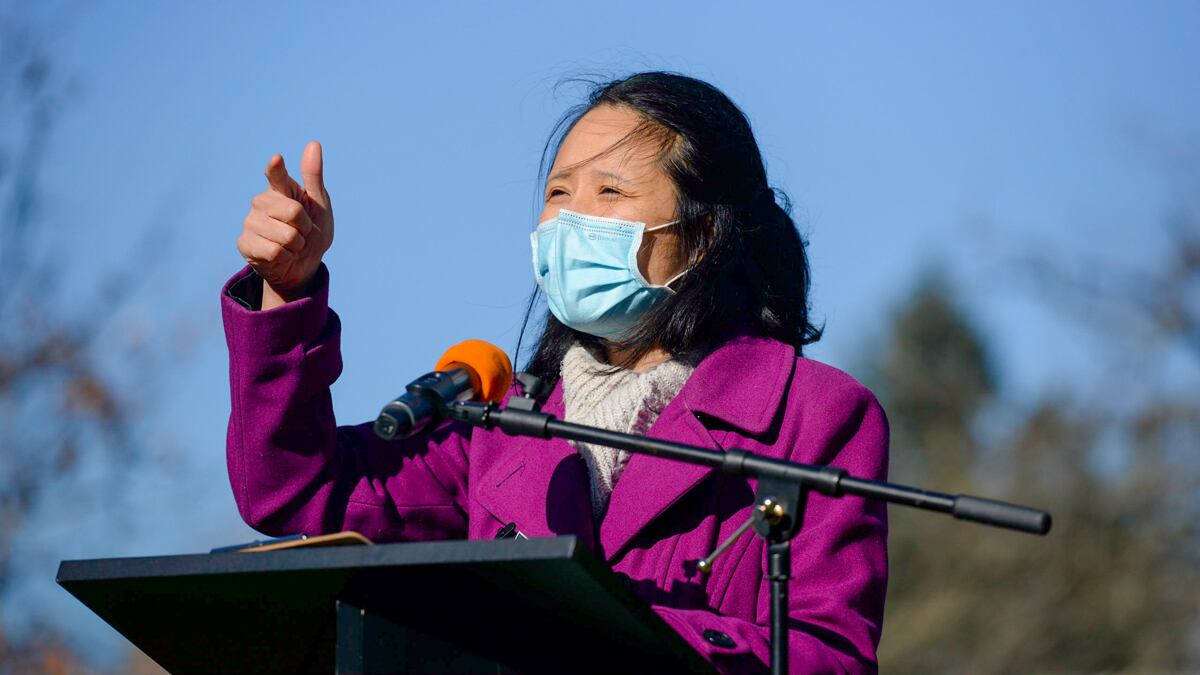Rep. Khanh Pham (D-Portland) is a leading skeptic of the Oregon Department of Transportation’s record on massive highway projects. Now she’ll seek to hold the agency accountable on the biggest infrastructure project in its history.
That megaproject? Replacing the Interstate 5 bridge across the Columbia River.
The last time the state tried to replace the bridge, Oregon and Washington spent nearly $200 million between 2005 and 2013—with nothing to show for it. As costs balloon on a highway expansion through the Rose Quarter, the other super-sized Portland highway project, Pham says keeping the price tag in check is her top priority so the transportation agency will still have money for other projects around the state.
She’ll get that chance: Last week, she was appointed to Interim Joint Committee on the Interstate 5 Bridge, the legislative committee overseeing the bridge’s replacement on the Oregon side. (Oregon lawmakers have a say because they need to approve additional funding.)
Pham worked for the nonprofit OPAL Environmental Justice Oregon and advocated passage of Portland’s clean energy ballot initiative before being elected to the Oregon Legislature in 2020. WW asked her what she thinks of the bridge project, and what she thinks should change.
The interview has been edited for length and clarity.

WW: Do you have a view on whether the current proposal for the bridge is the right size?
Rep. Khanh Pham: I’m excited to join and dive in deeper, but I am concerned we need to have a clear idea about our budget before we agree on the design.
And that’s not the traditional way ODOT and other transportation agencies approach it: Once we’ve approved the project, we’re on the hook as a state, and we will have to pay for whatever it ends up costing. And we know other megaprojects like this often end up being double the cost in the end.
But as an example, when I plan even just my own household remodeling project, I need to know my budget in order to make key design questions. I don’t get to choose “I want this, I want that” and then figure out how much it costs.
I would love to see an updated cost estimate and an investment-grade analysis by the end of the year in order for us to be able to make a decision in the 2023 session.
Why did you want to join the committee that decides on a bridge replacement?
Transportation is so connected to healthy communities. This is the largest infrastructure project in Oregon’s history. And I wanted to make sure that the communities I represent are able to weigh in—to make sure this project is responsibly designed, especially with respect to the fiscal costs, as well as climate considerations and racial equity.
What does equity look like for this project?
It includes the impact on low-income communities that live along I-5 and will have to breathe dirtier air because of the expanded freeway.
But the thing that is really driving me is the opportunity costs—and the investments we cannot make in equitable transportation if we are not able to control costs.
Right now, we see these transportation megaprojects ballooning in costs. I’m concerned this will become the transportation ask for the next five sessions.
What problems do you want the Interstate Bridge replacement to solve?
I would like the bridge to solve the problem of seismic resilience.
According to ODOT’s seismic report in 2014, we need to seismically retrofit another 718 bridges across the state. And the cost of that is about $5 billion, but ODOT currently says they don’t have enough money to do those seismic bridge retrofits—coincidentally, that’s about the cost of the current estimate for the IBR project.
So the cost estimate will determine whether you think it’s worth it to do the seismic upgrade on the Columbia River bridge or pick every single other bridge in the state that needs to be upgraded?
Just to be clear, the bridge replacement itself is less than 25% of the cost of the project. Building an actual new bridge is fairly simple. I mean, $1 billion is still a lot, but it’s something I would support.
I can imagine a situation where we both invest in replacing the bridge but don’t expand the freeways and can still invest in other transportation needs, like seismic retrofits across the state.
Should Oregon stop expanding highways?
I think highways are fossil fuel infrastructure, and we need to be really thoughtful about how we’re stewarding our public dollars, because this is infrastructure that’s going to last for the next hundred years.
We want to think about the legacy we’re leaving to future generations, both in terms of climate but also in terms of the financial debt obligations we’ll be leaving.
What could the bridge do for climate? Does that mean improving public transportation?
It means investing in multimodal transportation so people can use buses and light rail, and replace some of their single-occupancy car trips.
One in three Oregonians can’t drive either because of age or because they have a disability or can’t afford to own or maintain a car. We need to be building a transportation system that works for all Oregonians.
Public transit ridership is down in Portland—people prefer other options for health and safety reasons. What do you think can be done?
I would say both ODOT as well as our transit agencies really need to be leaning into a statewide public transit strategy. How do we increase ridership instead of just kind of accept decline as an inevitability?
I think a lot of people have no choice. I wish we were also wearing masks. I still ride the bus, and I do think that if we can improve safety, improve cleanliness, improve frequency and improve the route coverage, I think people will come.

